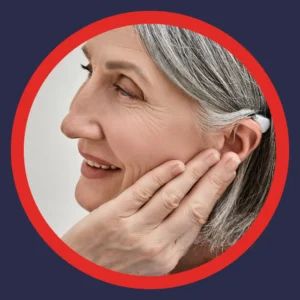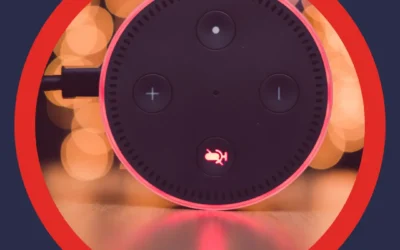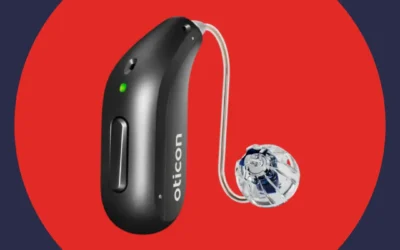Living with constant ringing or buzzing can feel exhausting. For many older adults, the search for relief feels endless. The best hearing aids for seniors with tinnitus do more than restore sound, they bring peace back to daily life. Could the right device quiet your tinnitus and help you reconnect more fully with the world around you?
Why Hearing Aids Often Help Seniors With Tinnitus
Tinnitus often develops alongside hearing loss. As hearing fades, the brain compensates by amplifying its own internal signals. That increase makes the phantom sounds of tinnitus louder. Amplifying external sounds with hearing aids restores balance, so the brain pays less attention to the noise inside.
Sound therapy strengthens this process. By introducing calming tones, hearing aids help the brain reclassify tinnitus as unimportant. Over time, the noise recedes into the background. A study of tinnitus sound therapy showed measurable improvements for many people who combined amplification with masking sounds. For seniors, this can mean better sleep, focus, and emotional calm.
Getting the right diagnosis first is essential. The type of hearing loss matters because treatment strategies differ. To understand how conductive and sensorineural loss affect tinnitus, see our guide to conductive versus sensorineural hearing loss and effective treatment. Accurate testing shapes the best path forward.

How Hearing Aids Reduce Tinnitus Day to Day
Hearing aids help with tinnitus through several overlapping mechanisms:
- Amplification. Everyday sounds become stronger, which makes tinnitus less noticeable.
- Sound therapy. Gentle relief tones create a pleasant background that reduces awareness of ringing or buzzing.
- Clarity. Better speech understanding lowers listening effort, and lower effort often means less tinnitus stress.
The American Tinnitus Association explains this process clearly in their guide to sound therapy questions. For seniors, these benefits combine to make daily listening less exhausting.
Features That Matter Most for Seniors With Tinnitus
Not every hearing aid provides the same support. Look for these features when choosing:
- Customizable relief sounds. White noise, pink noise, or ocean waves that can be tuned to your comfort.
- Speech-in-noise processing. Helps you follow conversations in restaurants or group settings.
- Easy app controls. Programs and levels you can adjust with a swipe or tap.
- Rechargeable batteries. Simple daily charging avoids frustration with tiny disposable batteries.
- Bluetooth streaming. Access to relaxation apps and soundscapes directly through your hearing aids.
- Remote adjustments. Telehealth support makes sure relief stays steady between visits.
For seniors, the key is simplicity. The easier the features are to use, the more consistent the benefit.
Comparing Leading Brands for Tinnitus Relief
Not all hearing aids are equally effective for tinnitus. Each manufacturer has developed unique tools to address both hearing loss and the persistent ringing that troubles so many seniors. Understanding these differences can help you choose the right match for your daily life.
Phonak: Versatile Relief With Strong Speech Clarity
Phonak has invested heavily in tinnitus care through its Tinnitus Balance Portfolio. This suite of tools is designed to retrain the brain to view tinnitus as unimportant. Devices like the Audéo Sphere Infinio provide customizable sound therapy options, while the invisible Lyric can be worn around the clock for continuous relief. What sets Phonak apart is its balance between relief tones and advanced noise reduction. Seniors often find that improved clarity in restaurants or group conversations reduces the stress that fuels tinnitus. Learn more in our overview of Phonak hearing aids.
ReSound: Personalized App-Based Soundscapes
ReSound focuses on giving patients control through its Relief app. Seniors can layer ocean waves, soft tones, and guided relaxation exercises, then save those mixes as presets for morning, afternoon, or bedtime. This flexibility matters when tinnitus shifts in intensity throughout the day. Paired with strong directional microphones, ReSound hearing aids help seniors hear family conversations without straining, which further reduces awareness of tinnitus. Explore models and features in our guide to ReSound hearing aids.
Starkey: Integrated Relief in Every Device
Starkey takes a holistic approach. Its Multiflex Tinnitus Technology is built into every hearing aid, not just premium models. This technology creates a stimulus matched to a senior’s audiogram, making it deeply personal. The Genesis AI also uses artificial intelligence to adapt soundscapes automatically, easing tinnitus across environments without constant manual adjustment. Seniors often appreciate the simplicity: relief is always on, no matter the setting. See details in our page on Starkey hearing aids.
Unitron: Gentle Relief and Guided Support
Unitron emphasizes ease and encouragement. Its tinnitus masker plays soothing sounds, while the Remote Plus app offers coaching and tips. Seniors who prefer clear instructions often find Unitron reassuring because it provides step-by-step guidance. At the same time, the Blu platform delivers modern connectivity, so relief sounds and phone calls stream seamlessly. Read more in our overview of Unitron hearing aids.
Oticon: Natural Sound and Relaxing Therapy Options
Oticon approaches tinnitus by reducing listening effort first. Its Tinnitus SoundSupport includes white noise and ocean-like sounds that can be personalized through the Oticon Companion app. Newer models like the Intent use a Deep Neural Network to separate speech from noise, so seniors hear conversations more clearly. This reduces the mental strain that often makes tinnitus louder.
Brand Highlights for Seniors With Tinnitus
|
Brand |
Key Tinnitus Feature |
App Experience |
Extra Strength for Seniors |
|
Phonak |
Tinnitus Balance sounds and retraining |
Comprehensive, easy to adjust |
Exceptional clarity in noisy settings |
|
ReSound |
Relief app with layered soundscapes |
Deep personalization |
Flexible programs for changing tinnitus |
|
Starkey |
Multiflex customizable stimulus |
Simple, reliable |
Relief integrated into every model |
|
Unitron |
Soothing masker with coaching |
Guided app support |
Easy routines for consistent use |
|
Oticon |
SoundSupport with ocean and noise options |
Companion app with flexibility |
AI reduces listening effort |
This chart shows that each brand has a philosophy: some emphasize patient control, others focus on automatic relief. The best choice depends on how hands-on a senior wants to be in managing their tinnitus each day.
Styles That Work Best for Seniors
Comfort is as important as technology. A hearing aid only works if it is worn consistently. Seniors often prefer devices that balance discretion and ease of handling.
|
Style |
Benefits |
Considerations |
Best Fit For |
|
Behind-the-Ear (BTE) |
Powerful, easy to grip, durable |
More visible, wind noise outdoors |
Severe hearing loss or dexterity issues |
|
Receiver-in-Canal (RIC) |
Natural sound, discreet, comfortable |
Needs dome cleaning and wax guard changes |
Most seniors seeking balance of clarity and comfort |
|
In-the-Ear (ITE) |
Custom fit, less visible outdoors |
Small batteries, shorter life |
Seniors prioritizing discretion |
For many seniors, RIC styles strike the right balance. They combine strong performance with all-day comfort. Our guide to good hearing aids for seniors explains how to compare styles and features. You can also compare Phonak Audeo hearing aids with Starkey Edge hearing aids.
The Connection Between Tinnitus and Health
Tinnitus is more than a nuisance. It touches nearly every part of health and daily living.
Cognitive Health
Untreated hearing loss and tinnitus increase the risk of memory decline. When the brain works harder to process sound, less energy is left for memory and thinking. Early action matters. Learn more in our resource on why you should schedule a hearing test during World Alzheimer’s Month.

Emotional Well-Being
Tinnitus often heightens stress and anxiety, which in turn can make the ringing feel louder. This cycle leaves many seniors feeling worn down and frustrated. Hearing aids with amplification and sound therapy help break that pattern by making communication easier and reducing strain. When frustration decreases, confidence and peace of mind grow stronger. Addressing hearing challenges also benefits caregivers and families, as improving hearing loss may enhance overall care for older adults. With better communication and support, emotional well-being becomes easier to protect.
Sleep and Energy
Tinnitus often grows more noticeable in quiet settings, especially at night. The constant ringing or buzzing can keep seniors from falling asleep and may cause frequent waking during the night. Poor rest drains energy, which in turn makes tinnitus feel even more overwhelming the next day. Lack of sleep also affects concentration, patience, and mood.
Modern hearing aids can ease this cycle by offering calming nighttime programs. These programs play gentle sounds, such as ocean waves or soft noise, that reduce the contrast between silence and tinnitus. By masking the ringing, they make it easier to drift into restful sleep. Over time, seniors who use sound therapy at night often experience steadier energy levels, improved focus, and a more positive outlook during the day. Better sleep does more than restore energy — it helps make tinnitus less disruptive and easier to manage long term.
Balance and Safety
The inner ear plays a critical role in balance as well as hearing. When hearing loss and tinnitus occur together, the risk of falls increases. Seniors may miss important auditory cues in their environment, such as approaching footsteps, alarms, or even traffic. Combined with age-related changes in balance, this can create dangerous situations.
Hearing aids improve awareness by amplifying environmental sounds and restoring spatial cues. The brain uses these sounds to help orient the body in space, reducing feelings of imbalance. Seniors who wear their hearing aids consistently often feel more confident walking in unfamiliar places or moving around at night. This boost in awareness not only lowers fall risk but also supports independence and freedom.
Health Care Outcomes
Clear communication is vital in medical settings. Seniors with tinnitus and untreated hearing loss may mishear instructions or miss important details during appointments. This can affect treatment plans, medication use, and overall health outcomes. Anxiety about not understanding can also make visits stressful and discourage seniors from asking questions.
By improving clarity, hearing aids reduce these risks. Seniors are better able to follow conversations with doctors and caregivers, leading to safer and more accurate care. They can participate more actively in their own treatment, ask questions with confidence, and leave appointments with a clear understanding of next steps. Addressing hearing loss does not only improve everyday life — it strengthens the quality of health care itself, creating a foundation for safer and more effective aging.
Financial Considerations
Cost is often a concern. Medicare does not cover hearing aids, but options exist. Some Medicare Advantage plans provide partial coverage. Private insurance may also contribute. Veterans benefits and nonprofit programs can help as well.
Planning ahead saves stress. Our guide to hearing aid insurance benefits explains what to ask before your visit.
Setting Realistic Expectations
Managing tinnitus with hearing aids is a journey, not a quick fix. While many seniors begin noticing small improvements within the first few weeks, true relief often takes longer. The brain needs months of consistent sound input to gradually “unlearn” the tinnitus signal and reclassify it as unimportant background noise. This process, known as habituation, only happens with steady use of hearing aids and patience.
Tracking progress makes the journey feel more manageable. Seniors often benefit from keeping a simple journal that notes sleep quality, daily mood, and moments when tinnitus feels more or less noticeable. Over time, these patterns reveal encouraging signs of improvement, even if the tinnitus itself has not disappeared. Seeing that stress is lower or sleep is steadier can motivate continued use of hearing aids and reinforce the importance of consistency.
Education is another cornerstone of success. Families and seniors who take time to understand the different types of tinnitus often feel more in control of the process. Some tinnitus is tonal, others are more like buzzing or hissing, and each can respond differently to therapy. Recognizing that relief varies by type helps set fair expectations. It also prevents frustration if progress seems slower than expected.
The most important expectation is that relief grows gradually. With professional guidance, steady hearing aid use, and patience, tinnitus becomes less intrusive. Seniors gain not only quieter days but also renewed confidence that life can be lived fully without constant distraction.
What to Expect on the Journey Toward Relief
|
Timeframe |
What Seniors Often Notice |
Why It Matters |
|
First few weeks |
Calming tones soften awareness of tinnitus; conversations feel clearer |
Early improvements build confidence and encourage consistent use |
|
1–3 months |
Sleep improves, stress lessens, tinnitus feels less dominant |
The brain begins adjusting to new input, reducing frustration |
|
3–6 months |
Tinnitus shifts into the background more often |
Habituation takes hold, bringing longer stretches of comfort |
|
6 months and beyond |
Ringing becomes less disruptive in daily life; confidence grows |
Consistent use and follow-up adjustments maximize long-term relief |
Choosing the Right Device With Confidence
Selecting the best hearing aid for tinnitus is not about picking a model from a shelf. It is about matching technology to your hearing needs, lifestyle, and comfort level. That process takes guidance, trial, and patience.
The first step is a thorough hearing evaluation. A provider will measure your hearing thresholds, speech understanding, and even the pitch and volume of your tinnitus. These details shape the programming of your hearing aids, ensuring amplification and relief tones are tailored to your profile. A professional fitting is essential because even the most advanced hearing aids cannot perform their best without precise adjustments.
Test Them First
Trial periods are another critical piece. Wearing hearing aids consistently in your real-world settings is the only way to know how well they work for you. A quiet office may feel fine during testing, but relief in a bustling restaurant or a family gathering is the true measure of success. Seniors should expect to test different programs, track how they feel in varied situations, and return for adjustments. These follow-up visits allow providers to fine-tune both amplification and tinnitus therapy settings.
Family involvement also matters. Loved ones often notice improvements in communication before seniors do. Inviting family members to the fitting or follow-up visits provides extra feedback and helps everyone understand how to support success. Family support can make wearing hearing aids daily feel less like a burden and more like a shared solution.
Finally, seniors should choose a device that not only meets today’s needs but also adapts to future changes. Tinnitus can shift over time, and hearing loss may progress. A device with flexible programs, strong processing, and long-term support ensures that your investment continues to bring relief. Confidence comes from knowing you have both the right device and the right team to adjust it as life evolves.

Take the First Step Toward Relief
The best hearing aids for seniors with tinnitus do more than improve hearing. They ease stress, restore focus, and bring peace back to life. Relief begins with one decision: scheduling a consultation.
American Hearing + Audiology offers Phonak, ReSound, Starkey, and Unitron hearing aids, all with tinnitus relief features. Our hearing care providers match technology to your needs and guide you every step of the way. Find a nearby office and start your journey to comfort today. Choose your American Hearing + Audiology location to schedule your appointment.



